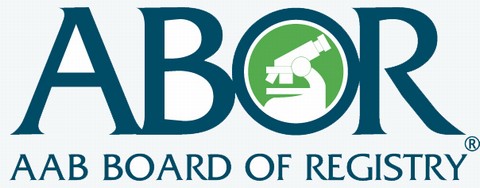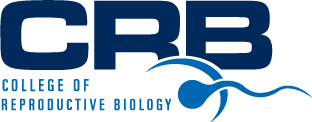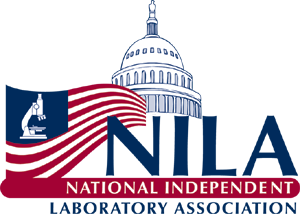ONC Health IT Issues Cyber Notice on Ransomware (Update #2)
DISCLAIMER: This product is provided “as is” for informational purposes only. The Department of Health and Human Services (HHS) does not provide warranties of any kind regarding any information contained within. HHS does not endorse any commercial product or service referenced in this product or otherwise. You may forward this message widely with no restrictions.
Dear HPH Sector Colleagues,
HHS continues to monitor on-going impacts to the HPH Sector from Petya/notPetya ransomware. At this time there is no new information to share about the threat vector. We are tracking the resolution of port closures, medical data software availability, and impacts to pharmaceutical companies and will report to you if we become aware of any long-term impacts to the HPH Sector.
HHHS/ASPR CIP will continue to monitor the situation but will no longer provide daily updates unless the situation warrants. We encourage you to connect with relevant trade associations, ISAO/ISACs, and government partners to discuss any long-term concerns related to this ransomware event.
Please review the information below. You may share this message freely with no restrictions. We will update you as more information becomes available.
Thank you -
HHS/ASPR Critical Infrastructure Protection Program
National Health Information Sharing and Analysis Center (NH-ISAC) in collaboration with ONC and ASPR disseminates cyber alerts and threat updates. To sign up to receive these alerts, go to https://nhisac.org/outreach/, on the left, you’ll see a box to enter your email information to subscribe.
To join the PHE mailing list please visit: https://www.phe.gov/Preparedness/planning/cip/Pages/mailinglist.aspx
Quick Links
- If you are the victim of a ransomware attack
- Mitigating against this threat
- US-CERT Resources
- Sector ISAO and ISAC resources
- ONC and OCR resources
If you are the victim of a ransomware attack
If your organization is the victim of a ransomware attack, HHS recommends the following steps:
- Please contact your FBI Field Office Cyber Task Force (www.fbi.gov/contact-us/field/fieldoffices) or US Secret Service Electronic Crimes Task Force (www.secretservice.gov/investigation/#field) immediately to report a ransomware event and request assistance. These professionals work with state and local law enforcement and other federal and international partners to pursue cyber criminals globally and to assist victims of cyber-crime.
- Please report cyber incidents to the US-CERT (www.us-cert.gov/ncas) and FBI’s Internet Crime Complaint Center (www.ic3.gov).
- **NEW** If your facility experiences a suspected cyberattack affecting medical devices, you may contact FDA’s 24/7 emergency line at 1-866-300-4374. Reports of impact on multiple devices should be aggregated on a system/facility level.
- For further analysis and healthcare-specific indicator sharing, please also share these indicators with HHS’ Healthcare Cybersecurity and Communications Integration Center (HCCIC) at HCCIC@hhs.gov.
Mitigating against this threat *Updated*
- *UPDATED* Our partners at NH-ISAC have tested a "vaccine" that has been reported as potentially helpful for systems that have not been impacted. The "vaccine" may also help spread of infection. Use of this "vaccine" should not preclude proper patching as it only prevents harm from one specific strain of malware. When using this vaccine, consider any potential business impact. The "vaccine" is the creation of a file C:\Windows\perfc and setting the permissions to READ ONLY. As with any patch/update, this modification should be evaluated before implementation by appropriate system security personnel. For further information on this "vaccine" please visit https://nhisac.org/nhisac-alerts/petyaransomware-updates/.
- Educate users on common Phishing tactics to entice users to open malicious attachments or to click links to malicious sites.
- Patch vulnerable systems with the latest Microsoft security patches: https://technet.microsoft.com/en-us/security/bulletins.aspx.
- Verify perimeter tools are blocking Tor .Onion sites.
- Use a reputable anti-virus (AV) product whose definitions are up-to-date to scan all devices in your environment in order to determine if any of them have malware on them that has not yet been identified. Many AV products will automatically clean up infections or potential infections when they are identified.
- Monitor US-CERT for the latest updates from the U.S. government. See below for current reporting
- Utilize HPH Sector ISAC and ISAO resources. See below for further information.
US-CERT Resources
Multiple Petya Ransomware Infections Reported
06/27/2017 12:56 PM EDT
Original release date: June 27, 2017 US-CERT has received multiple reports of Petya ransomware infections occurring in networks in many countries around the world. Ransomware is a type of malicious software that infects a computer and restricts users' access to the infected machine until a ransom is paid to unlock it. Individuals and organizations are discouraged from paying the ransom, as this does not guarantee that access will be restored. Using unpatched and unsupported software may increase the risk of proliferation of cybersecurity threats, such as ransomware.
Petya ransomware encrypts the master boot records of infected Windows computers, making affected machines unusable. Open-source reports indicate that the ransomware exploits vulnerabilities in Server Message Block (SMB). US-CERT encourages users and administrators to review the US-CERT article on the Microsoft SMBv1 Vulnerability and the Microsoft Security Bulletin MS17-010. For general advice on how to best protect against ransomware infections, review US-CERT Alert TA16-091A. Please report any ransomware incidents to the Internet Crime Complaint Center (IC3).
Sector ISAO and ISAC resources
National Health Information-Sharing and Analysis Center has shared the following TLP-White Message and will continue to share information at nhisac.org.
HITRUST has shared the following Threat Bulletin for distribution.
ONC and OCR resources
- ONC provides many helpful resources about Health IT Security to include cybersecurity guidance materials and training at https://www.healthit.gov/providersprofessionals/cybersecurity-shared-responsibility and https://www.healthit.gov/providersprofessionals/ehr-privacy-security/resources.
- OCR provides cybersecurity guidance materials including a cybersecurity checklist, ransomware guidance and cyber awareness newsletters at https://www.hhs.gov/hipaa/forprofessionals/security/guidance/cybersecurity/index.html.
- About
- Membership
- Certification
- Continuing Education
- Activities
- News






